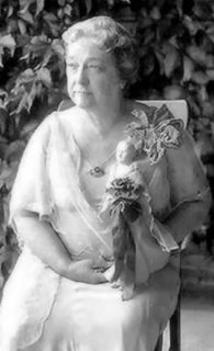|
The use of the red poppy (the Flanders Poppy) as a symbol of remembrance derives from the fact that the poppy was the first plant to re-emerge from the churned up soil of soldiers graves during the First World War.
We Shall Keep The Faith
Oh! You who sleep in Flanders Fields,
Sleep sweet - to rise anew!
We caught the torch you threw
And holding high, we keep the Faith
With All who died.
We cherish, too, the poppy red
That grows on fields where valor led;
It seems to signal to the skies
That blood of heroes never dies,
But lends a lustre to the red
Of the flower that blooms above the dead
In Flanders Fields.
And now the Torch and Poppy Red
We wear in honor of our dead.
Fear not that ye have died for naught;
We'll teach the lesson that ye wrought
In Flanders Fields.
~ Moina B. Michael 1918

|
Lieutenant Colonel John McCrae
It was a poem by Lieutenant Colonel John McCrae, a Canadian medical officer, which began the process by which the Flanders Poppy became immortalized worldwide as the symbol of remembrance.
The inspiration for the poem had been the burial of a fellow officer during the Second Battle of Ypres in early May 1915. McCrae's verses, which had been scribbled in pencil on a page torn from his dispatch book, were sent anonymously by a fellow officer to the English magazine, Punch, which published them under the title In Flanders Fields on 8 December 1915. Subsequently, the poem was published around the world to much acclaim and is one of the most memorable and moving poems of the Great War.
In Flanders Fields
In Flanders Fields the poppies blow
Between the crosses row on row,
That mark our place; and in the sky
The larks, still bravely singing, fly
Scarce heard amid the guns below.
We are the dead. Short days ago
We lived, felt dawn, saw sunset glow,
Loved and were loved, and now we lie
In Flanders fields.
Take up our quarrel with the foe:
To you from failing hands we throw
The torch; be yours to hold it high.
If ye break faith with us who die
We shall not sleep, though poppies grow
In Flanders fields.
~ Lieutenant Colonel John McCrae 1915
|